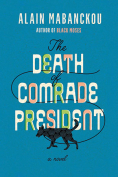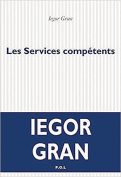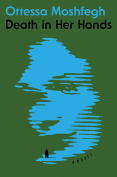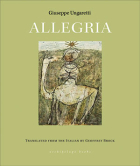Les Services compétents by Iegor Gran
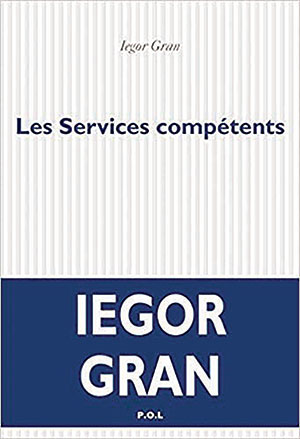 Paris. P.O.L. 2020. 304 pages.
Paris. P.O.L. 2020. 304 pages.
IEGOR GRAN IS the son of the former Soviet dissident Andrei Sinyavsky (1925–1997). This is the partly fictionalized account of Sinyavsky’s clandestine writings, which were smuggled abroad and published in the West. He was arrested in 1965, along with his friend and fellow writer Yuli Daniel. Sinyavsky and Daniel spent six and four years in prison camps, respectively, for “anti-Soviet activities”—that is, for having satirized the Soviet Union and its Communist system in their texts. The Sinyavsky-Daniel show trial did not have the desired effect, instead becoming the starting point of the Soviet dissident movement. Two years after his release, Sinyavsky was allowed to immigrate to France with his wife, Rozanova, and their child. Iegor Gran thus arrived in Paris at the age of nine. He later became an engineer and a novelist.
This novel concentrates on the years leading up to Sinyavsky’s arrest. In spite of the subject matter, the narrative is mostly light in tone. Instead of a suspenseful and potentially deadly cat-and-mouse plotline that would concentrate on the “Competent Services” (a euphemism for the KGB) and the mystery writer, it is Rozanova who takes center stage. Although she is clearly aware of the dangers facing her husband, she seems mostly bemused by the lack of effectiveness of the massive Soviet security apparatus, which for several years cannot locate a satirical writer who uses a presumably Jewish pseudonym, Abram Tertz, while hiding in plain sight in Moscow.
Among those tracking “Tertz,” a young lieutenant named, stereotypically enough, Ivanov is the main character. Strangely idealistic, Ivanov appears to be genuinely convinced that he is doing necessary and useful work that will contribute to the welfare of his country and his fellow citizens. His interactions with his colleagues and with his wife, Larissa, provide ironic insights into daily life in the Soviet Union at the beginning of the Brezhnev era. Iegor Gran has clearly done some research, and he provides some of his sources at the end of the volume.
This is not the first time Gran has interwoven dark humor into relatively bleak and/or provocative novelistic content. In ONG! (2003), he provided a grotesquely comic description of the ego-driven rivalries between the staffers of two nongovernmental organizations that are headquartered in adjacent offices. In L’Écologie en bas de chez moi (2011), he satirized what he saw as the counterproductive and self-righteous attitudes of some environmental activists. No doubt due to his family’s experiences, Gran is particularly attuned to any manifestation of groupthink and to its deadening effects on autonomous thought. His novels often constitute reminders that an unshakeable sense of humor (including self-deprecating humor) is necessary in order to maintain some level of sanity in the face of societally mandated madness.
Edward Ousselin
Western Washington University







